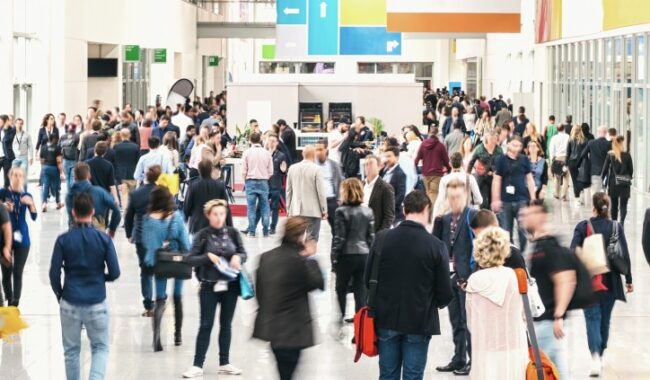35,000.
That’s how many decisions we make, on average, during a single day.
From what we’ll eat to what we’ll wear to which projects we’ll work on when we log on for our workday to those we’ll save for tomorrow, we’re making thousands of choices, both big and small, from the second we wake up to the moment we go to sleep.
Over the course of the pandemic, our decisions have become more serious and complex, and in turn, more exhausting. That’s because they’ve required much more planning around our personal and collective health and safety. Those decisions, combined with the ongoing uncertainty over the past two years, have actually made it more difficult to make the simplest of daily decisions.
This phenomenon is called “decision fatigue,” and like many people, I’ve struggled with it too. One morning recently, I got up and took my daughters to school as usual. But when I got home at 8 a.m., I couldn’t decide what I wanted to tackle first. Instead, I decided to disconnect for an hour and watch an episode of “The Sopranos.” Taking that moment of self-care helped me recharge and reset my day, and I was better for it. Prioritizing our well-being is one of the best ways we can take care of ourselves, our families and our colleagues.
During the pandemic, well-being in the workplace expanded beyond just physical and mental health to encompass everything from emotional to social to financial health as well. Despite employers and employees having a greater holistic understanding of what workplace well-being is, employees are still having a tough time concentrating at work, admit they’re more stressed than at any other point during their entire professional careers and are burning out at unprecedented rates. Even worse, very few employees feel their companies and their leadership actually care about their overall well-being.
At The 180 Group, we believe fostering better well-being is a win-win for everybody — for our team and our industry. We define well-being as giving people the space and resources they need to be themselves and to find balance. We recognize we’re all unique humans — in fact, it’s one of our core values. What concepts like well-being, happiness and work/life balance mean to one person may be completely different from what they mean to another. For example, some people find fulfillment in their work, while others want to do bigger things beyond their jobs.
Our job as a Coaching Team at The 180 Group is to not only encourage our team members to take their paid time off and set healthy boundaries for themselves but to also invest in ways to support their personal and professional growth and development by providing them with opportunities to pursue their passions and hobbies. Whether it’s allowing employees more flexibility about when, where and how they work or creating a culture that truly celebrates balance, we strive to help our employees be their best selves.
If anyone on our team begins to feel overwhelmed and overly stressed, we want them to disengage by going for a walk, playing with their dog or cat for an hour or taking a day or two off, if needed. This is especially important when we’re traveling and producing events on location. I often encourage my team to take time to enjoy the sights and sounds of the cities we’re in, particularly after long set-up and show days. Besides the team building benefits, it reminds us there’s life outside of work and also frees up our brain space, which boosts both our productivity and creativity.
But we’re not only addressing our employees’ well-being. We are mindful that our clients are people, and our audiences need human experiences as well, whether they’re attending events in person or virtually. We know the pandemic has taken a toll on the overall health of everyone involved in the meetings and events industry, from our clients to presenters to audiences. They’re also dealing with decision fatigue, stress and burnout, and we must be mindful of what they’re feeling and meet them where they’re at. From offering low- or no-tech ways for attendees to unwind to producing shorter, more energizing and engaging virtual events, we can help nurture a sense of better well-being for everyone involved.
Since well-being means different things to different people, it’s imperative that we, as leaders and event creators, invite people to be a part of the well-being conversation with us and listen to what they want and need. And, if we’re able, we find ways to adapt our policies and shows for the better. For instance, we asked our team members at The 180 Group what PTO means to them and how they use it. Based on their answers, we’re now allowing people to take however many sick days they may need so they don’t have to worry about using up their PTO days for unexpected sick days. In addition, our employees can now earn up to 30 days of PTO within their first five years and will receive an additional half-day of paid time off to recover and decompress if their travel or work happens on the weekend. We want to honor their commitment to us, as well as provide them with useful ways to achieve better well-being and balance in their lives.
For the past two years, we’ve all struggled with navigating personal challenges while coping with the magnitude of a global pandemic. However, if we choose to prioritize well-being and take intentional steps to improve it, great things can happen. Trust me — it’s an easy decision to make.
A special note to my 180 Group team:
It’s important that we treat you as humans. If you need a mental health break, please take it. If you’re feeling sick, don’t come to work. And if you ever need or want to talk about anything, we’re here for you.


